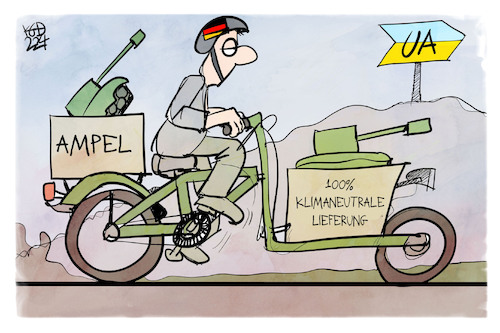Gary Saul Morson, The New York Review of Books, 12/5/2022
Traduit
par Fausto
Giudice, Tlaxcala
Détectant la même incompétence et la même autosatisfaction chez les libéraux du gouvernement provisoire en 1917 et les réformateurs de l'ère post-soviétique dans les années 1990, Alexandre Soljenitsyne craignait une nouvelle descente vers un régime autoritaire.
Livres recensés :
March 1917: The Red Wheel/Node III (8
March–31 March): Book 3 [Mars 1917 : La Roue Rouge/Nœud III (8 mars-31 mars) : Livre 3 ]
by Aleksandr Solzhenitsyn, translated from the Russian by Marian Schwartz
University of Notre Dame Press, 684 pp., $42.00
Between Two Millstones: Book 2, Exile in America, 1978–1994 [Esquisses d'exil. Le Grain tombé entre
les meules, T. 2]
by Aleksandr Solzhenitsyn, translated from the Russian by Clare Kitson and
Melanie Moore, and with a foreword by Daniel J. Mahoney
University of Notre Dame Press, 559 pp., $39.00
Alexandre Soljenitsyne, par Seth, NYRB
Pour Alexandre Soljenitsyne, aucune forme littéraire n'a jamais été suffisamment vaste. Trois œuvres gargantuesques ont dominé sa vie créative. L'Archipel du Goulag : Une expérience d'investigation littéraire, sur lequel repose principalement sa réputation, relate en trois volumes l'histoire des camps de travail forcé soviétiques. Ce livre lui a valu le prix Nobel de littérature en 1970 et un exil forcé de l'Union soviétique en 1974, la première expulsion officielle depuis la déportation de Léon Trotski vers la Turquie en 1929. Soljenitsyne lui-même considérait La Roue rouge, une série de romans sur la révolution russe, comme sa principale contribution à la littérature. Ces romans posaient une question : Pourquoi et comment l'horreur sans précédent décrite dans L'Archipel du Goulag s'est-elle produite ? Les réponses auxquelles Soljenitsyne est parvenu ont façonné son troisième grand projet, quatre volumes de mémoires.
La Roue rouge est divisée en quatre « nœuds », dont certains contiennent plus d'un volume ; chaque nœud se concentre sur une courte période spécifique regroupant les événements importants qui ont conduit à la catastrophe du régime bolchevique. Les deux premiers nœuds, août 1914 et novembre 1916, superbes œuvres qui débordent la forme conventionnelle des romans historiques, sont suivis de quatre longs volumes consacrés au troisième nœud, mars 1917, qui relate les événements du 8 au 31 mars 1917. Le dernier nœud, avril 1917, toujours non traduit en anglais, englobe deux autres volumes. Le troisième volume de mars 1917, désormais disponible dans une interprétation exceptionnellement fine de Marian Schwartz, est particulièrement captivant. Il constitue un compagnon idéal pour le dernier volume des mémoires de Soljenitsyne, la deuxième partie de Le Grain tombé entre les meules, récemment traduite en anglais, qui présente les années Gorbatchev comme une étrange répétition de 1917.
Ensemble, les deux volumes de Le Grain tombé entre les meule décrivent la vie de Soljenitsyne depuis son expulsion de l'URSS jusqu'à son retour en 1994. (Après avoir envisagé plusieurs endroits en Europe et en Amérique du Nord, il s'est finalement installé à Cavendish, dans le Vermont, qui lui rappelait la Russie et lui offrait l'isolement nécessaire pour travailler à La Roue rouge). Le titre Le Grain tombé entre les meules fait essentiellement référence à la surprenante hostilité et à l'absurde déformation de ses opinions auxquelles l'auteur a été confronté en Occident. Les mêmes cercles intellectuels et médiatiques qui avaient célébré son courage lorsqu'il était en URSS se sont souvent transformés en critiques implacables parce que, explique Soljenitsyne, il ne partageait pas les idées conventionnelles de la gauche usaméricaine, mais défendait des positions qui ne correspondaient pas aux catégories occidentales existantes. Il se trouvait donc pris entre les « meules » soviétiques et occidentales, qui le vilipendaient et lui attribuaient des opinions intolérantes qu'il ne partageait pas.
Soljenitsyne a identifié dans les cercles intellectuels occidentaux la même étroitesse d'esprit suffisante qu'il avait découverte chez les intellectuels russes libéraux avant la révolution. Le moment central de ces volumes se produit lorsque, comme l'écrit Soljenitsyne,
un grand commentateur de la télévision [canadienne] m'a sermonné en disant que j'avais la prétention de juger l'expérience du monde du point de vue de ma propre expérience limitée de l'Union soviétique et des camps de prisonniers. En effet, comme c'est vrai ! La vie et la mort, l'emprisonnement et la faim, la culture de l'âme malgré la captivité du corps : comme c'est limité par rapport au monde brillant des partis politiques, aux chiffres d'hier à la bourse, aux amusements sans fin et aux voyages exotiques à l'étranger !
Soljenitsyne avait lui-même jadis célébré les libéraux et les socialistes russes qui dirigeaient le gouvernement provisoire renversé par les bolcheviks, mais les archives occidentales - et peut- être ses rencontres avec des Occidentaux - l'ont amené à adopter un point de vue entièrement différent. Les membres du gouvernement provisoire et leurs partisans étaient tellement incompétents, satisfaits d'eux-mêmes et prêts à supprimer toute opinion insuffisamment progressiste que la tyrannie ne pouvait que triompher. Soljenitsyne a décelé le même état d'esprit chez les réformateurs russes libéraux dans les années 1990 et a craint une nouvelle descente vers un régime autoritaire.
Il y a eu deux révolutions russes en 1917. En février (mars selon les calculs actuels), le tsar Nicolas II, l'une des personnes les plus stupides à avoir jamais occupé un trône, abdique. La violence populaire, accueillie par les personnes instruites avec l'extase naïve de la « fièvre de février », a déclenché le chaos qui a permis aux bolcheviks de prendre le pouvoir en octobre (aujourd'hui novembre). Contrairement au tsar ou au gouvernement provisoire qui lui a succédé, le parti de Lénine n'a pas hésité à recourir à une violence extrême. La tristement célèbre Tchéka (police secrète, ancêtre du NKVD, de l'OGPU et du KGB) est en activité avant la fin de 1917. Les mauviettes de la Douma se sont révélées aussi ineptes sur le plan stratégique que Lénine était brillant. :





